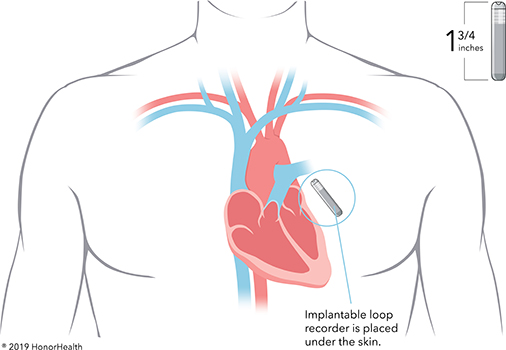

Insertable cardiac monitors: Current indications and devices. A review of the wide range of indications and uses of implantable loop recorders: A review of the literature. Accuracy of arrhythmia detection in implantable cardiac monitors: A prospective randomized clinical trial comparing Reveal LINQ and Confirm Rx. How do implantable loop recorders work? (n.d.).Common tests for congenital heart defects.

Implantable loop recorder in clinical practice. You can learn more about how we ensure our content is accurate and current by reading our editorial policy. We link primary sources - including studies, scientific references, and statistics - within each article and also list them in the resources section at the bottom of our articles. Medical News Today has strict sourcing guidelines and draws only from peer-reviewed studies, academic research institutions, and medical journals and associations. If someone has no EKG abnormalities or symptoms, the doctor can remove the device and stop monitoring the heart. A doctor may also refer a person to a different specialist. If a person had symptoms but did not have corresponding EKG abnormalities, the doctor will investigate other possible causes, as they may not relate to the heart. medication, such as blood-thinning medication.implantation of a cardiac defibrillator.These treatments may include the following: If the report shows EKG abnormalities that correlate with a person’s symptoms, a doctor can diagnose and make treatment recommendations. symptoms that the person reported during the monitoring phaseĪccording to the report, a doctor can diagnose and make treatment recommendations.the technician’s interpretation of the EKG.A loop recorder report includes information about: Once the medical team has the results, they will create a report. Alternatively, the person will need to attend the hospital so that doctors can download the results from the recorder. Depending on the device, the results may send automatically to a doctor. assess a person’s average heart rate and adequacy of rate control during atrial fibrillationĪ loop recorder sends recordings to a person’s medical professional, sometimes through a small transmitter within the individual’s home.screen a person with cardiac syndromes for ventricular premature beats - extra heartbeats due to atypical electrical activity in the lower chambers of the heart - and tachycardia.identify episodes of atrial fibrillation, an irregular heartbeat that can cause poor blood flow, after a stroke.evaluate a patient’s outlook following an acute coronary event, such as a heart attack, due to a sudden reduction of blood to the heart.However, they can help a doctor make a diagnosis according to the heart’s rhythm, which may help them detect such conditions or refine their treatment of existing conditions. However, manufacturers do not design loop recorders to detect specific heart problems, such as: Doctors may also use a loop recorder to assess bradycardia before implanting a permanent pacemaker. Doctors use loop recorders to see how a person’s symptoms correlate with EKG findings, which can help them make an accurate diagnosis and choose the most effective treatment.ĭoctors typically use a loop recorder to evaluate recurring palpitations in people, and episodes of syncope, or fainting, of unknown causes.


 0 kommentar(er)
0 kommentar(er)
